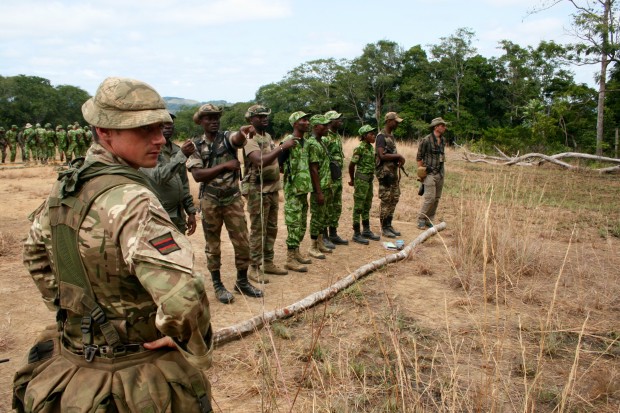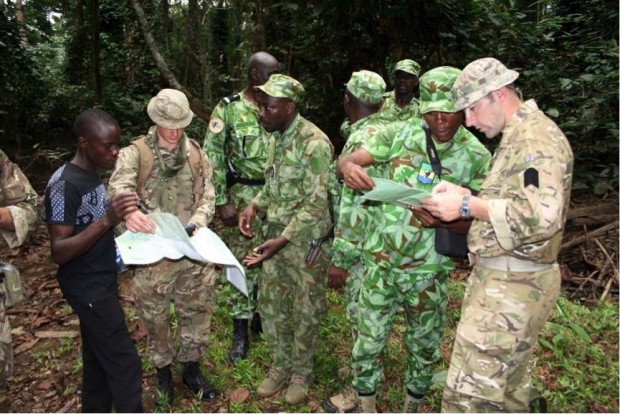The battle against ivory poaching in Gabon is well under way after a team of British Army soldiers landed to train native park rangers.
The Northern Ireland-based soldiers departed for the West African nation last month (August) following a request from the President to help combat poaching, which has brought forest elephants to the brink of extinction.
The team is working with Gabon Park Rangers at a military training centre at Mokekou. Their contribution includes sharing operational experience and training, including surveillance and analysis, as well as collection and use of criminal intelligence to support successful prosecution of gangs responsible for the slaughters.

Major Mark Shercliff who heads up the team, has given his account of the training so far:
Our first week was spent orientating ourselves to the environment - understanding the forest, the wildlife and the Parks Agency (ANPN). We also assisted with the construction of the training camp for us and the Ecoguards (Park Rangers).
We are living and operating in a small clearing on the edge of a huge area of primary jungle, nine hours’ drive from the capital, and an hour from the nearest village. Elephants are hard to spot, but are roaming all around us - one surprised some of us by walking into the camp.
We are training a group of 61 men and women who will be or are already involved in counter-poaching patrols. The overwhelming majority are Ecoguards and Gendarmes. The Gendarmes are part of the ANPN structure. There are a handful of soldiers too, who reinforce ANPN patrols in the most heavily poached areas.
The objective for us is not military training, but to impart military skills and techniques to the ANPN as an organisation.
The Ecoguards and Gendarmes work in the most poached parks, mostly in the border areas of the country. There are a handful of native trackers here too - incredibly tough people.
Training has involved lessons on: navigation skills, patrolling techniques, first aid, injury prevention in the jungle, weapon handling/safety and fitness/teamwork.
The students have been enthusiastic to learn. Next we will build up to short patrol exercises, live firing with weapons, patrol planning and evidence gathering, as well as lessons on Gabonese law and Rules of Engagement.
Following this work we will repeat patrols, adding ambush drills and interdiction.
The training team are adapting to the unique environment - the climate has been pleasant but the heat and humidity is set to rise markedly during our time here.
Patrolling in the jungle is hard work - the rangers are generally very experienced at living in the jungle but lack the tactical know-how to handle an armed adversary confidently. They are very robust characters but we will help improve their attention to equipment and planning – including emphasis on carrying water and emergency equipment.
We have a number of embedded ANPN military students taking part in the training, who have so far contributed positively to the course. Students have been receptive although there is a long way yet to go to build organised and self-disciplined sections.
Our jungle camp remains fit for purpose. However, rains have become more frequent.

In the past decade more than 15,000 of Gabon’s estimated 22,000 forest elephants in the huge Minkebe National Park alone have been slaughtered by poachers for a lucrative Asian market. The British Army team is drawn from a range of units including 2 Rifles based at Lisburn, 1 SCOTS at Holywood as well as specialist corps. Almost 90 per cent of Gabon is forested and highly sophisticated gangs operate across vast swathes under dense canopy.
Follow us on Twitter and don’t forget to sign up for email alerts.
